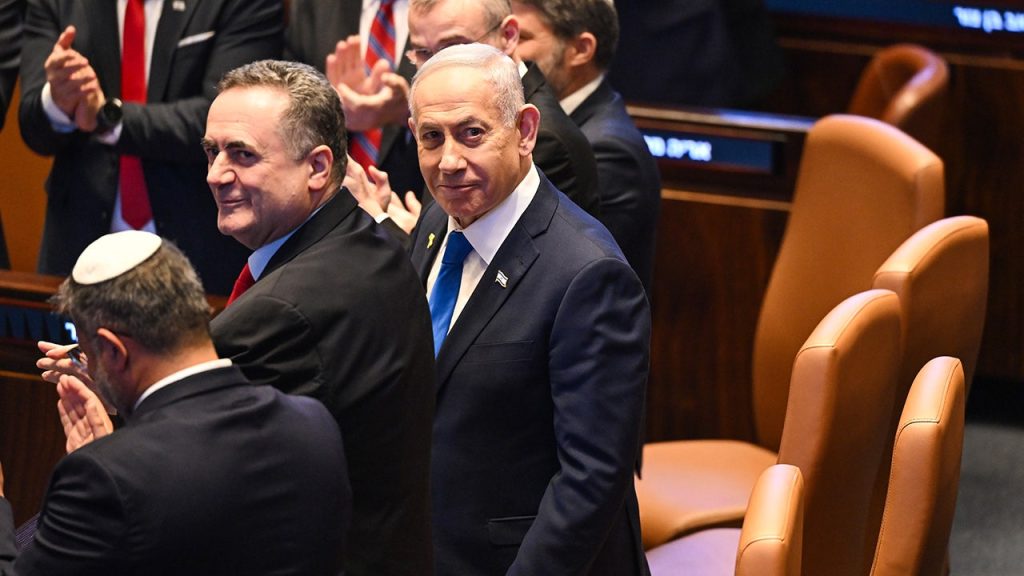Netanyahu Declines Peace Summit Amid Regional Transformation
In a significant diplomatic development, Israeli Prime Minister Benjamin Netanyahu has opted not to attend Monday’s peace conference in Sharm el-Sheikh, Egypt, citing “time constraints ahead of the holiday.” The summit, jointly hosted by President Donald Trump and Egyptian President Abdel Fattah el-Sisi, aims to solidify an end to the Gaza conflict and will bring together more than 20 world leaders. Netanyahu’s absence comes during the Jewish holidays of Shemini Atzeret and Simchat Torah, which fall between October 13-15. This decision has drawn sharp criticism from within Israel, particularly from Yair Golan, leader of Israel’s left-wing Democrats, who expressed being “appalled” by the prime minister’s choice to miss what he described as a “historic event orchestrated by President Trump.” Golan did not mince words, stating that “Netanyahu’s refusal to attend the peace summit in Egypt is driven purely by narrow political interests,” and adding that after two years of Israel’s most difficult war, the country “cannot afford a leader guided by his personal interest.”
The summit represents a crucial moment in regional diplomacy, with an impressive roster of attendees that includes leaders from Turkey, Jordan, Britain, Germany, France, Italy, as well as senior representatives from the United Nations and the European Union. Palestinian Authority President Mahmoud Abbas will also be present, reflecting the collective effort of regional powers to secure a role in stabilizing Gaza in the post-war period. The gathering comes at a time when the Trump administration is actively pursuing an expansion of the Abraham Accords, the landmark normalization agreements that brought four nations into formal diplomatic relations with Israel during Trump’s first term. Senior White House officials have expressed optimism about the possibility of additional Arab and Muslim-majority countries joining this framework once the current conflict in Gaza reaches resolution, suggesting a potential transformation of the regional diplomatic landscape.
Further adding to the diplomatic intrigue surrounding the summit, Israeli media reported that Indonesian President Prabowo Subianto—leader of the world’s largest Muslim-majority nation—was expected to visit Israel on Tuesday. This news sparked speculation that Indonesia might be considering an Abraham Accords-style normalization agreement with Israel, which would represent a monumental shift in relations. However, Indonesian Foreign Minister Sugiono quickly tempered expectations, telling Indonesian media there was “no such plan” for a presidential visit. The confusion highlights the delicate nature of evolving diplomatic relationships in the region, where public positions and private negotiations often follow different trajectories.
President Subianto had previously raised eyebrows with his unusually warm remarks toward Israel during his address to the United Nations General Assembly last month, where he notably concluded his speech with the Hebrew word “Shalom.” In that address, he emphasized, “We must also recognize, we must also respect, and we must also guarantee the safety and security of Israel. Only then can we have real peace.” These statements from the leader of the world’s most populous Muslim nation signaled a potential shift in Indonesia’s traditional position on Israel, adding another layer of complexity to the regional diplomatic landscape as various nations reconsider long-held positions in light of changing realities.
The Sharm el-Sheikh conference emerges against the backdrop of what appears to be a ceasefire in Gaza and growing momentum for the Abraham Accords framework. Since their inception during Trump’s administration, these agreements have challenged the conventional wisdom that Arab-Israeli normalization could only follow a resolution of the Palestinian issue. Instead, they have created new pathways for regional cooperation based on shared interests in security, technology, and economic development. The White House’s current focus on expanding these accords signals confidence that more nations see value in formal relations with Israel, even as challenges remain in resolving the broader Israeli-Palestinian conflict.
Netanyahu’s decision not to attend the summit, regardless of the stated reason, highlights the complex interplay between domestic politics and international diplomacy that Israeli leaders must navigate. While his absence may disappoint those hoping to showcase united international support for peace efforts, the participation of so many other global and regional leaders underscores the international community’s commitment to finding sustainable solutions for Gaza and the wider Middle East. As the summit proceeds without Israel’s prime minister, the world watches to see whether this gathering can generate meaningful progress toward regional stability and perhaps lay groundwork for further diplomatic breakthroughs in the coming months, potentially transforming decades-old conflicts into new opportunities for cooperation.


